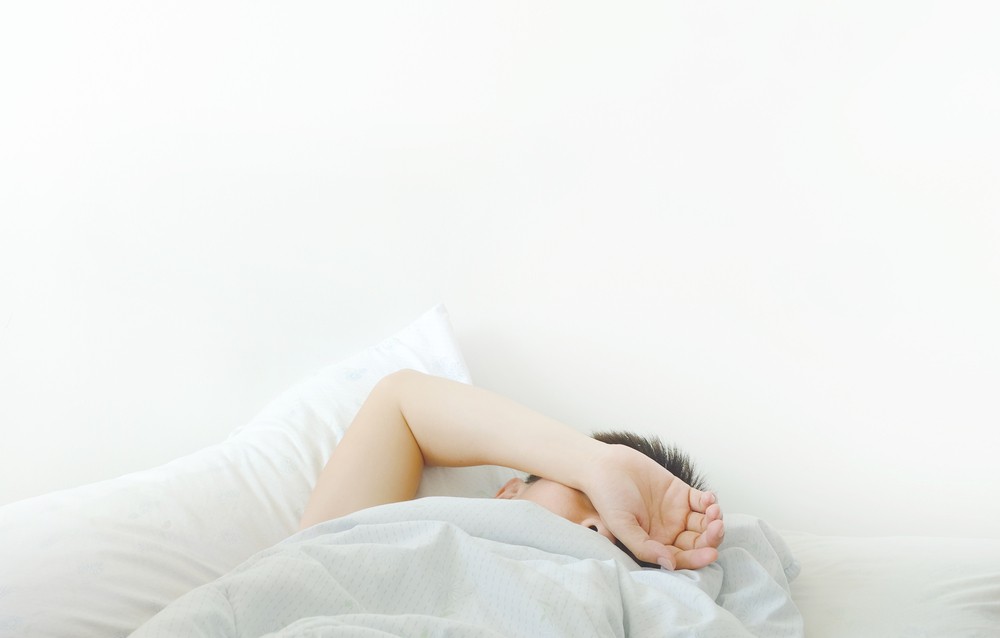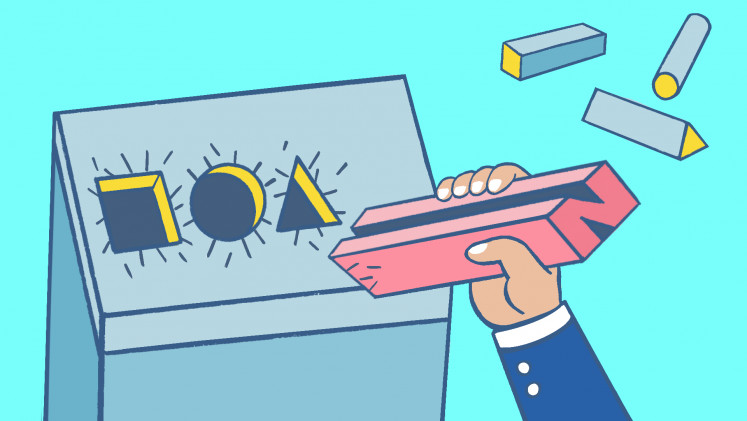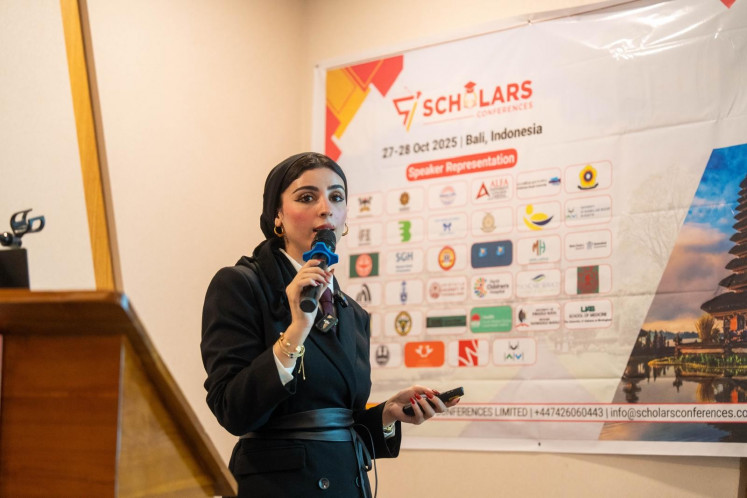Popular Reads
Top Results
Can't find what you're looking for?
View all search resultsPopular Reads
Top Results
Can't find what you're looking for?
View all search resultsLearning about insomnia for a healthier, better life
Most everyone experiences an episode of insomnia, difficulty falling asleep, staying asleep or waking much too early.
Change text size
Gift Premium Articles
to Anyone
S
leep is essential, but many of us struggle with it. Most everyone experiences an episode of insomnia, difficulty falling asleep, staying asleep or waking much too early.
Transient insomnia – insomnia that lasts less than a month – may be the result of a temporary problem at work or an acute illness; while short-term insomnia, which lasts one to six months, may stem from a personal financial crisis or the loss of a loved one.
When insomnia lasts six months or longer, it can cause serious physical, emotional and social devastation. Seeing a doctor is recommended – one that might recommend further evaluation in a sleep study at a sleep lab.
Chronic insomnia may result in impaired cognition, confusion, psychomotor retardation or increased risk of injury, and is often accompanied by depression, either as a cause or result of persistent insomnia. In a study of nursing home residents, insomnia among the elderly population is also associated with increase risk of falls and bone fractures.
Types of insomnia
There are two types of insomnia. The first type is called primary insomnia. It results from a problem that occurs mainly during sleep, such as obstructive sleep apnea, restless leg syndrome (RLS) or periodic limb movement disorder (PLMD). Unless noted by their bed partners, people with primary insomnia may not know why their sleep is disrupted.
An accurate diagnosis requires a sleep study in a sleep lab, which involves spending a night or two in the sleep lab for complete monitoring.
The second, more common, type of insomnia occurs as a result of underlying medical or psychiatric problems, medicinal side effects, caffeine or alcohol intake, daytime naps, light from electronic devices, jet lag or excessive noise.
Among the medical conditions that can cause insomnia are heart failure, gastroesophageal reflux disease (GERD), lung disease, arthritis, Alzheimer's and incontinence. Treating these underlying conditions, if possible, often relieves the insomnia.
Women may experience insomnia from the normal hormonal fluctuations of the menstrual cycle and from the menopausal changes in hormonal regulation, such as hot flashes. In these situations, hormone treatments and antidepressants may help.
Older men in their sixties may experience insomnia due to prostate enlargement, with frequent urination at night (nocturia) that could interfere with their sleep. These men need to be evaluated by a urologist who could offer medical treatment or surgical intervention that could alleviate the problem.
Sleep deprivation can result in car accidents as well as injury and decreased productivity at work. It is associated with a range of serious health problems, including obesity, heart disease, depression, impaired immune function and cognitive loss in the elderly.
Read also: Here’s the reason why you like to gossip, and why it’s OK
Sleep science development
Seep science, a field dedicated to the biology of repose, has developed in the last two decades. Sleep medicine has grown as a specialty, with fellowship training programs and clinics devoted to caring for those suffering sleep disorders.
Sleep deprivation is related to many health issues. If you are sleep deprived, you are more likely to catch a cold. A healthy immune system can fight off a cold, but not one that is sleep deprived.
Read also: Experts weigh in on the right amount of sleep
You are more prone to workplace accidents. The American Insomnia Survey of 2012 estimated that 274,000 workplace accidents were directly related to sleep problems. When you don't sleep, your thinking and memory are fuzzy. Your concentration decreases and you are more likely to make mistakes. Sleep-deprived fuzzy thinking also leads to an increase in car accidents.
Researchers have found that adults who sleep less than five to six hours are at a higher risk of being overweight. Among children, sleeping less than 10 hours a night is associated with weight gain. Part of the explanation may be that sleep-deprived people eat more. Staying up late leads to eating more in general and craving carbohydrates, which results in weight gain.
Sleep deprivation affects your mood, making you less happy or content. Studies have shown that school bullies and children who are disruptive in class are twice as likely to show signs of sleep problems as compared to well-behaved children.
When people anticipate having difficulty falling asleep, they may spend hours lying awake in bed worrying about being unable to sleep. and the more they fret about insomnia, the worse it can get. The anxiety over not sleeping impairs the ability to sleep.
If you awaken in the middle of the night or the wee hours of the morning and cannot get back to sleep within 20 minutes in bed, experts recommend leaving the bedroom and doing something useful, keeping light to a minimum, and returning to bed when you feel sleepy.
Good sleeping Dos & Don'ts
Non-medical causes of insomnia are often successfully treated by practicing good sleep hygiene habits, a concept developed by a sleep specialist at the Mayo Clinic.
- Go to sleep and wake up at the same time each day. Don't sleep in on the weekends.
- If you must take a nap, limit the nap to less than 30 minutes a day. Don't nap after 3 p.m.
- Avoid TV screens and display monitors in the bedroom.
- Avoid stimulants and sedatives.
- Avoid heavy meals and minimize liquids within 2-3 hours of bedtime. Don't snack late at night.
- Get moderate exercise daily. Don't exercise too close to bedtime.
- Maximize exposure to bright light during the day, and minimize it at night. Don't use your computer, laptop, tablet, cell phone or other devices with bright digital displays close to bedtime.
- Create comfortable sleep conditions.
- Sleep in a cool and dark room.
- Meditate to calm the mind.
Many people mistakenly resort to alcohol as a sleep aid. Alcohol actually produces fragmented sleep and interferes with REM (rapid eye movement) sleep, the period when we sleep deeply and experience vivid dreams.
Read also: Dream sleep probably good for your health, research suggests
Sleeping pills can be problematic, especially for older people who are more sensitive to their side effects. Regular use can also create a dependency. Sleeping pills can be useful for those who are in a difficult time, such as the death of a loved one or other stressful event.
A proven effective treatment for addressing insomnia is Cognitive Behavioral Therapy. It involves talk therapy to change unproductive thinking patterns along with changes in sleep habits. It also uses relaxation therapy, stimulus control and established sleep and wake patterns. A typical course of Cognitive Behavioral Therapy lasts 6-8 weeks.
Other alternatives for addressing insomnia include over-the-counter remedies like melatonin, valerian and lavender, all of which have more anecdotal evidence than scientific research to attest to their efficacy.
Melatonin works to relieve jet lag, but offers only modest benefits for insomnia. Valerian is an herbal extract that is taken before bedtime. It promotes falling asleep, but does not reduce night awakenings. Lavender is an herb that is taken either internally as a tea or tincture, or externally as an inhalant or topical application.
The first step toward better sleep is to have good sleep hygiene. If you notice that your insomnia becomes a chronic problem, then go see a doctor to rule out any medical conditions. Improving your sleep is important to be healthy and to enjoy a good quality of life, regardless of age. (kes)
***
Agustinus Rushanaedy is an Indonesian diaspora who obtained his medical degree at the Katholieke Universiteit Leuven in Belgium. A board-certified urologist and a fellow of the American College of Surgeons, he has maintained a holistic approach that emphasizes patient education and preventive medicine in his 30 years of practicing medicine.
---------------
Interested in writing for thejakartapost.com? We are looking for articles and opinions from experts in a variety of fields, as well as others with strong writing skills. Submit your original piece to community@jakpost.com on the following topics: lifestyle (beauty, fashion, food), entertainment, science & technology, health, parenting, social media and sports. Click here for more information.











